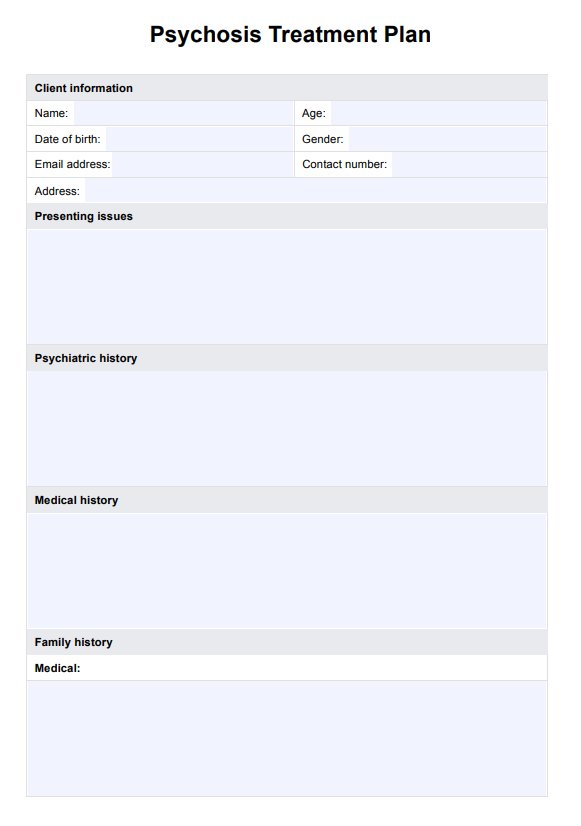Psychosis is a mental state with altered thoughts, emotions, and reality perception.

Psychosis Treatment Plan
Create effective Psychosis Treatment Plans to empower recovery and support your clients. Start planning today!
Use Template
Psychosis Treatment Plan Template
Commonly asked questions
Hallucinations can occur with psychosis and other psychotic disorders, involving false perceptions such as seeing or hearing things.
Treatment typically involves therapy, medication, and support to manage psychotic symptoms and improve functioning.
EHR and practice management software
Get started for free
*No credit card required
Free
$0/usd
Unlimited clients
Telehealth
1GB of storage
Client portal text
Automated billing and online payments











